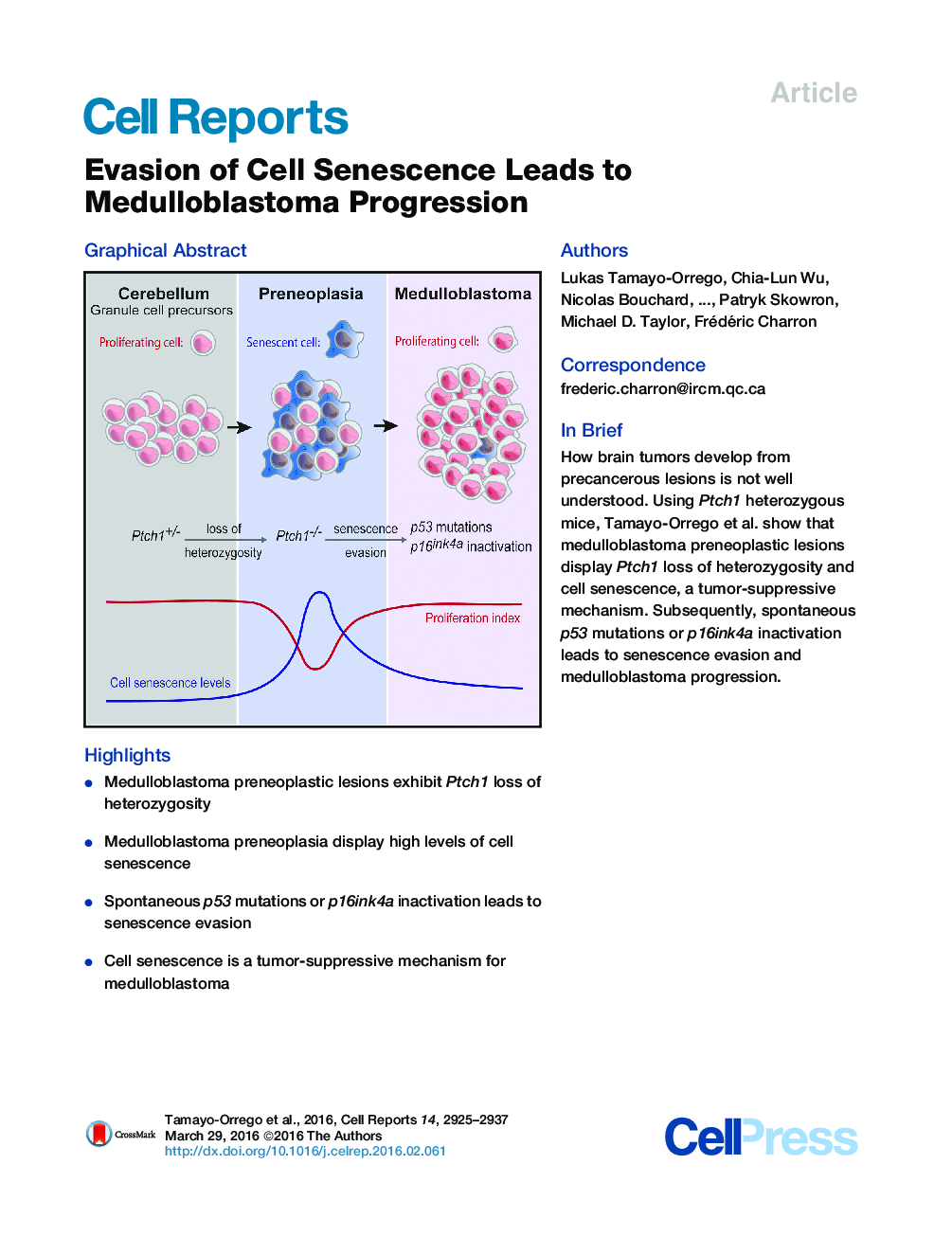| Article ID | Journal | Published Year | Pages | File Type |
|---|---|---|---|---|
| 2041404 | Cell Reports | 2016 | 13 Pages |
•Medulloblastoma preneoplastic lesions exhibit Ptch1 loss of heterozygosity•Medulloblastoma preneoplasia display high levels of cell senescence•Spontaneous p53 mutations or p16ink4a inactivation leads to senescence evasion•Cell senescence is a tumor-suppressive mechanism for medulloblastoma
SummaryHow brain tumors progress from precancerous lesions to advanced cancers is not well understood. Using Ptch1+/− mice to study medulloblastoma progression, we found that Ptch1 loss of heterozygosity (LOH) is an early event that is associated with high levels of cell senescence in preneoplasia. In contrast, advanced tumors have evaded senescence. Remarkably, we discovered that the majority of advanced medulloblastomas display either spontaneous, somatic p53 mutations or Cdkn2a locus inactivation. Consistent with senescence evasion, these p53 mutations are always subsequent to Ptch1 LOH. Introduction of a p53 mutation prevents senescence, accelerates tumor formation, and increases medulloblastoma incidence. Altogether, our results show that evasion of senescence associated with Ptch1 LOH allows progression to advanced tumors.
Graphical AbstractFigure optionsDownload full-size imageDownload as PowerPoint slide
